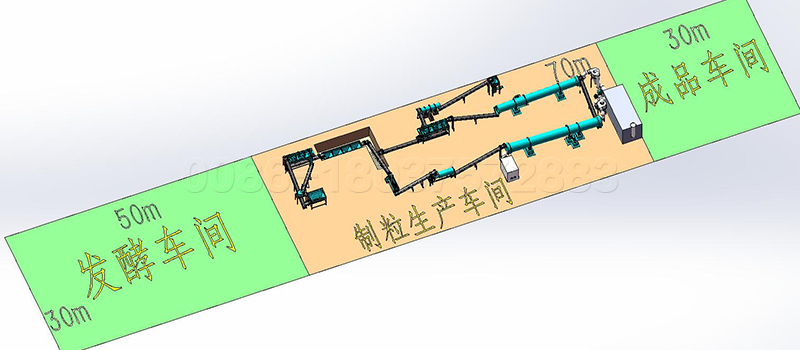1: water conservation
Fulvic acid is a kind of colloidal organic matter, which can make the soil loose, absorb water, ventilate and humidify, store water, resist drought, make the soil have good water, air and heat conditions, and is suitable for seed germination and growth. Seedling growth.
2: Improving saline alkali land
Fulvic acid has small molecular weight and high activity. It can adsorb harmful cations in soil, reduce the concentration of salt in soil, reduce the harm of salt to seeds and seedlings, and improve saline alkali soil.
How to make this type of fertilizer for your crops? Here are solutions and machines for you:https://www.fertilizer-plants.com/
3: Drought and cold resistance
1. Spraying fulvic acid on plant leaves can close stomata and reduce water transpiration.
2. Fulvic acid has a deep color, which is conducive to the absorption of solar energy; Fulvic acid will release heat during microbial decomposition, which can improve the ground temperature and play a role in cold protection.
4: disease and insect resistance
Fulvic acid can increase the activity of enzymes in plants and increase the resistance of plants.
5: resistance to heavy metal pollution
Fulvic acid participates in the ion exchange reaction in soil, capturing heavy metal ions in soil and preventing them from entering the biological cycle.

6: improve fertilizer efficiency
1. Nitrogen fixation: when nitrogen is applied to soil, it is easy to volatilize into the atmosphere or discharge into rivers. Fulvic acid can absorb nitrogen in soil, reduce its volatilization and loss, and improve its utilization
2. Dephosphorization: when phosphorus is applied to the soil, it is easy to be fixed by the soil. Fulvic acid can be released from soil by chelating phosphorus, which can be used for plant absorption and improve the utilization rate of phosphorus.
3. Active potassium: the potassium applied to the soil is mostly in the form of potassium salt, which cannot be directly absorbed by crops. Fulvic acid can be converted into soluble potassium through ion exchange, which can increase the available potassium in soil and improve the utilization rate of potassium.
4. Trace element fertilizer: fulvic acid can chelate with insoluble trace elements to produce humic acid trace element chelate with good solubility and can be absorbed by crops, which is conducive to the absorption of trace elements by roots and leaves.
7: Promote crop growth and development
1. Fulvic acid can stimulate the growth of root system, resulting in a great increase in the ability of crops to absorb water and nutrients.
The stimulating effect of fulvic acid can stimulate the growth of vegetative parts of plants. There are plant height, stem diameter, leaf thickness and so on.
Fulvic acid had a good effect on tillering and reducing air rate, and could increase grain weight and yield.
8: adjust soil pH value
Fulvic acid has many functional groups, which can combine with acid and alkali, and adjust soil pH according to crop needs.
Now we introduce an organic fertilizer production line. The main machine of organic fertilizer production line is a new type of organic fertilizer granulator.
Characteristics of new organic fertilizer granulator
(1) The product particles are round balls
(2) The content of organic matter can be as high as 100% and made into pure organic particles
(3) Organic particles can grow up under a certain force, and there is no need to add adhesive during granulation.
(4) The product has large particles and can be directly screened after granulation to reduce drying energy consumption
(5) After fermentation, the organic matter does not need to be dried, and the moisture content of raw materials can reach 20% – 40%.

